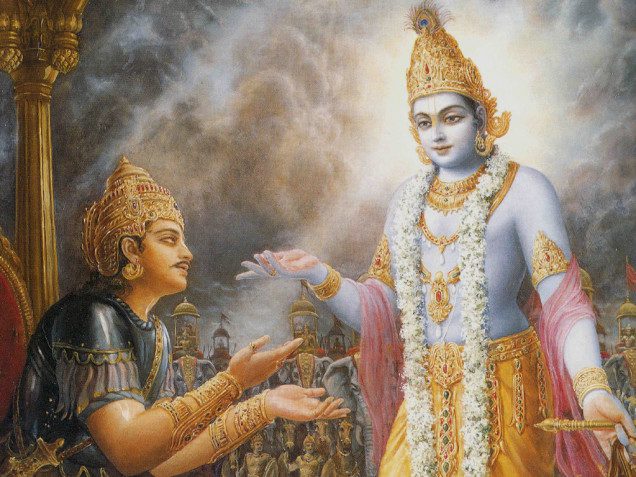How counting your karma can transform your life
The following article by Dr David Frawley (Pandit Vamadeva Shastri) was first published by DailyO
An acceptance of our karmic responsibility in life allows us to act with clarity and integrity.People all over the world speak about karma, relative to their own lives or the condition of society, just as many practice yoga. Yet a true understanding of karma is rare.
Karma refers to something one has done, a deed. Karma also indicates the long-term consequences of our actions. An action is like an arrow that is shot. Once a deed is done, its consequences cannot be called back. These long-term effects can be very different from the short-term gains that are the usual focus of our efforts.
Karma is not destiny or fate, with which it is sometimes confused. Karma is a matter of cause and effect; as you sow, so shall you reap. The complication is that our actions do not always bear fruit immediately. Some take years or even lifetimes – so long ago that we may forget what we did in the past that brought us to where we are today.
Karma and personal freedom
The law of karma provides a distinct contrast to modern concepts of personal freedom. Our tendency today is to think that each individual should be free to do what he or she wants. This sounds very liberal but can make us ignore the facts of karma.We are free to act in life, but we must also face the consequences of our actions. You are free to put your hand into a fire or not, but you are not free to escape getting burned if you do.
Karma, however, is not sin, and does not involve any petty moralism. Yet acting in a way that is harmful to others will naturally bring harm to ourselves by the qualities of the forces set in motion. Karma is not the fiat of some deity but reflects how the interconnected energies of life reverberate.
There are not only consequences to our actions at outer social and personal levels; there are ethical and spiritual implicationsfor our inner being or soul. These inner effects of karma may require that we limit or renounce our desires – something our commercial culture does not encourage. Action done out of desire is not free, but binds us to the external world, and may only increase further desires.
Assuming karmic responsibility
The law of karma means that we as individuals are responsible for who we are, not someone else. Even though the external world influences how we act, we alone are karmically accountable for what we eventually decide to do. We cannot simply play the role of the victim, putting our failures at the doorsteps of other people or society. Excusing the violence done by certain groups under the charge that someone else made them do it also does not work with karma.
An acceptance of our karmic responsibility in life allows us to act with clarity and integrity. It brings more consideration into our behaviour and directs us towards higher values. We live in a universe pervaded by consciousness and have a karmic responsibility to the whole of life. If we fail to acknowledge the karmic implications for what we do, we create unnecessary suffering for everyone.
Going beyond karma
Can one ever go beyond karma? We would all like to do what we want and not suffer any negative consequences. But we cannot escape karma, however much we may wish to. Yet it is possible to transcend karma to a higher awareness. This is what yoga and meditation areabout. Karma Yoga, acting with a sense of service to the whole of life, is the best practice to improve our karma. Meditation helps us understand how karma works and shows us how to become detached from its results.
Today we do not believe in karma as much as we believe in money and power – but this can produce very negative karmas if we are not careful. There are also new karmas in the information-technology era that we must consider. Using the new media has a special karmic responsibility as it can easily promote distortions or proliferate unnecessary desires.
Let us recognise our karmic responsibility as individuals, so that our lives achieve what is truly meaningful for us at a spiritual level. And collectively let us recognise the effect of our actions on future generations, so we do not compromise the resources of life that belong to all.
Do an honest accounting of your karma if you can, not just an assessment of what you may own, know or have achieved. It can be very revealing and transforming.
Learn the wisdom of karma and your life will become an adventure in consciousness.


No comments:
Post a Comment